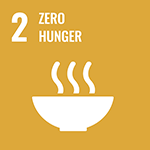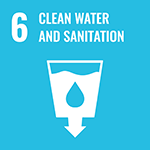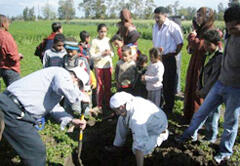Sustainable Systems for Food and Bio-energy Production with Water-saving Irrigation in the Egyptian Nile Basin
Principal Investigator
ODA Recipient Country
Arab Republic of Egypt
Research Institutions in Japan
University of Tsukuba / Tottori University
Research Institutions in Counterpart Country
Cairo University (CU)
Adoption fiscal year
FY 2008
Research Period
5 Years
Overview of the Research Project
Water conservation as a strategy for creating new water resources to turn deserts into farmland
The arid country of Egypt is totally dependent on the Nile River, and is experiencing a continuous rise in population. Consequently, food production and job creation are pressing issues. But the capacity of food production in the Nile Delta, the traditional major agricultural region, is limited, and the available water resources in the Nile River have already reached their limit. Therefore the goal of this project is to rationalize water use in existing farms in the Delta region in order to send water to the surrounding desert regions, enabling farmland development and thereby increasing food production. Efficient and sustainable methods of using irrigation water and farmland will be constructed for this purpose.
Examining water and farming in the Nile Delta to work out the proper approach for farming communities
The main crops are grown using a range of irrigation methods, and studied from the three perspectives of crop production, soil, and meteorology, investigating the response of the crops, water consumption, yield, and the influence of salt damage. The water management behavior of farmers, hydrodynamics, and other factors are also observed and analyzed. The aim is to establish models for effective and sustainable agriculture and for water management.
Photo gallery
Research Project Web site
Press Release
Links
Projects
Contact Us
Japan Science and Technology Agency (JST)
Department of International Affairs
SATREPS Group
TEL : +81-3-5214-8085
Related articles by Category
- Global-scale environmental issues
Environment / Energy
(Global-scale environmental issues)
 Kingdom of Thailand
Kingdom of Thailand
“Natural rubber seeds”, the unlimited potential hiding in natural rubber plantations
Utilization Technology of Rubber Seeds for Green Products to Mitigate Global Warming and Plastic Pollution
- Africa
Environment / Energy
(Global-scale environmental issues)
 Republic of Zambia
Republic of Zambia
Experienced, not taught - Realizing safe water, sanitation and hygiene in Africa
Risk-based Participatory WASH Planning and Citizen-data WASH Statistics for African Peri-urban Settlements
- SDGs : Goal.2
Bioresources

 Republic of Indonesia
Republic of Indonesia
Achieve sustainable vegetable production in tropical regions using advanced breeding technology!
Breeding Innovation in Chili Pepper and Tomato to Accelerate Sustainable Vegetable Production in Tropical Regions






 Arab Republic of Egypt
Arab Republic of Egypt
















